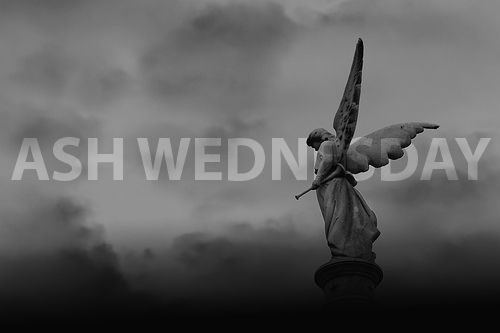 One of the basic truths that is unveiled to us as we walk the Christian path is that we are both far worse off than we ever thought, and far more loved than we ever dreamed. On Ash Wednesday, as we begin Lent, there is always a focus on the first of those truths, on the reality of sin, on our own experiences of brokenness and failure. But in the middle of this first focus, we always pause for a reminder of the second one, when we proclaim Psalm 103 together. This Psalm grounds us in the truth that in spite of our sinfulness, we are far more loved than we ever dreamed. Understanding and experiencing the love God has for us sinners is the heart of understanding and experiencing the Christian attitude to sin. Often the default human attitude to sin, to wrongdoing, is either to hide it or to try to make up for your guilt. The default response to change and loss is to keep a stiff upper lip. The default response to failure is to try to win next time. In other words, when you face darkness and brokenness of whatever kind, that attitude says dealing with it is your problem. Any answer there will be lies with you, with who you are and what you do. Whereas the Christian response to the places of darkness and brokenness we encounter in ourselves and others is all about who God is and what God has done. And I just want us to look tonight at what the section of Psalm 103 appointed for this fast day has to say about those things. What does it reveal to us about God? What is God like?
We started at verse 8: The Lord is "full of compassion and mercy." Verse 9 tells us God is not a nag or a scold, nor does he hold grudges. God never reaches the limits of his love for us; he never throws up his hands and gives up. Verse 10 describes another way God behaves toward us. “He has not dealt with us according to our sins." In other words, as Christians we do not get what we deserve. If God treated us in proportion to our sins and our failures, keeping score and demanding improvement, we’d all be hopeless; we would never be able to be in a healthy relationship with God or each other. But instead God provides a way for us to be forgiven, healed, and reconciled through the Cross of Christ. And look at what verse 11 and 12 tell us about that way. The forgiveness God provides is as broad as the space between heaven and earth. It’s a forgiveness that “removes our sins from us as far as the east is from the west.” How far east do you have to go before you reach west? You never get there; you just keep going. God’s forgiveness is infinite. But there’s more. In verse 13 and 14 we discover God’s patience. God cares for us, as a parent does a child, by understanding our limitations. It says, “He remembers that we are but dust.” As human beings, our lives are fragile; we are dust blowing in the wind and to dust we shall return. You’ll hear those words later in this liturgy, as the ashes go on your forehead to sign you with that truth. We try to pretend we’re strong, but in reality we’re pretty darn weak. In a split instant our lives can end. We’re constantly limited. Change keeps coming. Our loved ones fall ill or pass away, our aspirations are disappointed. We behave badly, or we are treated badly by others. But God understands all this because he designed us, he knows how we were made, he realizes our limitations better than we realize them ourselves. “He remembers that we are but dust.” And even more, though the Psalmist didn’t know this yet, God understands even more deeply because centuries after the Psalmist wrote, he became human in Jesus Christ, returning to the dust in death himself to atone for our sins and carry our sorrows, all for love of us. There is more to this Psalm which we haven’t read today – you have the whole thing on our insert, and it would be a great thing to take it home and read it. But even in this little section, look at all we’ve seen. What does Psalm 103 show us? It shows us a God who is full of compassion and mercy. Who will never hold a grudge. Who is ready, if we ask for it, to put our sins so far away from us that it is as if they had never happened. Who actually himself provides the way of forgiveness. Who understands our limitations. Who does not leave us to deal with the pains of life alone. If I have to face truths about my own sin and wrongdoing, those are the kind of truths about God I want to face right along with them. I know I can’t deal with my own sin or solve my own losses or heal my own wounds. None of us can. But thank God I know that by his grace, I don’t have to, because Jesus has already taken care of it. So if, like me, Ash Wednesday leaves you feeling that you are far worse off than you ever thought, don’t leave without also recognizing what Psalm 103 has to tell you: you are far more loved than you ever dreamed. And because of that, even as Lent begins, we can bless the Lord who forgives all our sins, for his mercy endures forever. Amen.
0 Comments
Your comment will be posted after it is approved.
Leave a Reply. |
Archives
July 2024
Categories |

 RSS Feed
RSS Feed